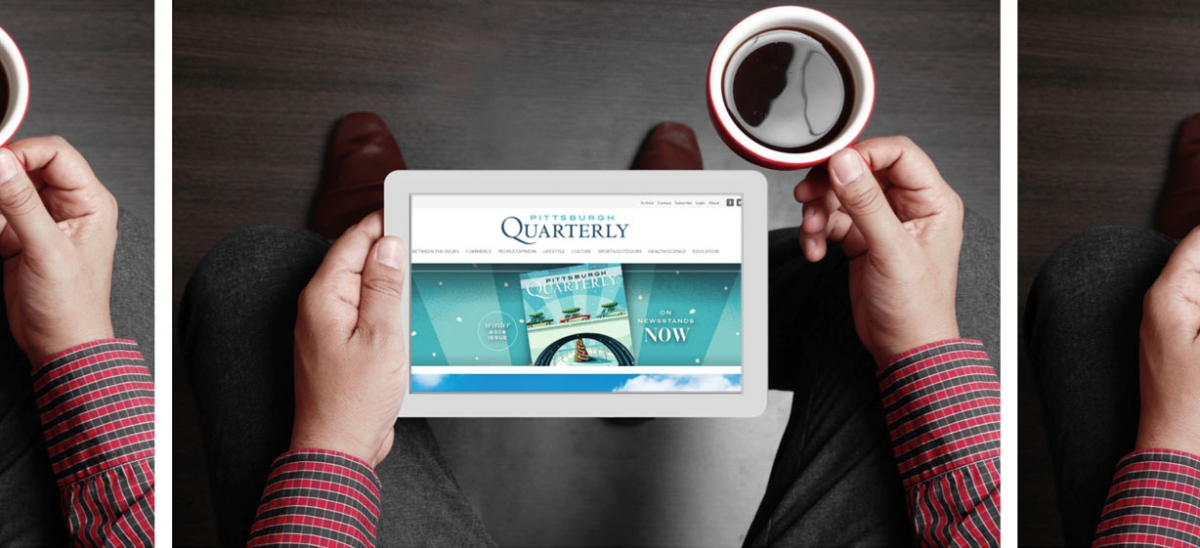A Printing Press for the Future

During a pre-Sscars movie binge, I recently saw “Spotlight,” the film about the Boston Globe’s investigation into the cover-up of sexual abuse by Catholic priests. Having spent two decades at Pittsburgh’s daily papers, the newsroom scenes brought back the vitality of a great American institution—the newspaper—which sadly appears to be fading into history.
And I confess that as I watched the ending, in which the papers fly through the Globe’s printing press and into the hands of an old woman sitting at her kitchen table reading the story, tears filled my eyes. I was proud of newspapers and their commitment to uncovering the truth.
Back in 1986, a year after I started as a reporter, I began leading tours of The Pittsburgh Press, figuring I’d learn about the business and meet people in other departments. Visitors liked the tours, especially the newsroom, but the tours always ended with the presses for good reason. As they roared to life, you could feel the rumble throughout the building, and off of those presses came the day’s newspapers by the hundreds of thousands.
It was probably my third year at the paper, when someone reacted to one of my stories saying, “I never get in an argument with someone who buys his ink by the barrel.” It was the first time I’d heard that old line, and I balked at its implications of naked power and demurred that accuracy and fairness guided our newsroom. But since Gutenberg invented movable type nearly 600 years ago, and from Ben Franklin through Watergate, there is no disputing “the power of the press.”
Now though, that power is changing, in fundamental ways I don’t think we fully understand yet.
In recent months, our staff has been working to prepare a new website we’ll launch later this spring. I’ve learned how to post stories and decipher a variety of computer lingo characters so the web pages don’t appear as a mosaic of inscrutable symbols. There’s no shortage of tedium and frustration learning this stuff, but now that I’ve gotten my hands dirty enough to understand the system, I’m becoming filled with a new kind of excitement.
It boils down to this: with this site, we will have our own printing press. I guess I can’t be accused of being an early adopter, but the implications of being able to reach people all over the world with the stroke of a keyboard astound me.
As Gutenberg’s press led to the Renaissance and the Reformation, our new printing press—the Internet—is leading to a new and still inchoate world. For the first time in history, virtually all of the ingredients of human life are available on the Internet—politics, propaganda, war, friendship, dating, sex, money, crime and entertainment. Now, everyone can be a publisher. Everyone can reach everyone. And the results range from enabling video chats with your kids overseas to the spread of Isis.
Commercially, of course, the coin of this new realm is eyeballs. How many visitors can you attract, and how much time do they spend on the site? And the standard way to get eyeballs is to try and insinuate your product into people’s lives. “Friend” them through social media. Be in constant contact. And, in Pittsburgh, generate search-engine interest by doing lots of stories containing the word “Steelers.”
For us, however, the magazine will remain the flagship. We are Pittsburgh Quarterly for a reason. On a quarterly basis, print is an unassailable citadel. Our new website, however, will augment our quarterly efforts, allowing our outstanding journalists to reach our readers between the issues.
As to how we plan to get those eyeballs, the answer is simple and perhaps old-fashioned: through high-quality journalism that is worth our readers’ time.


